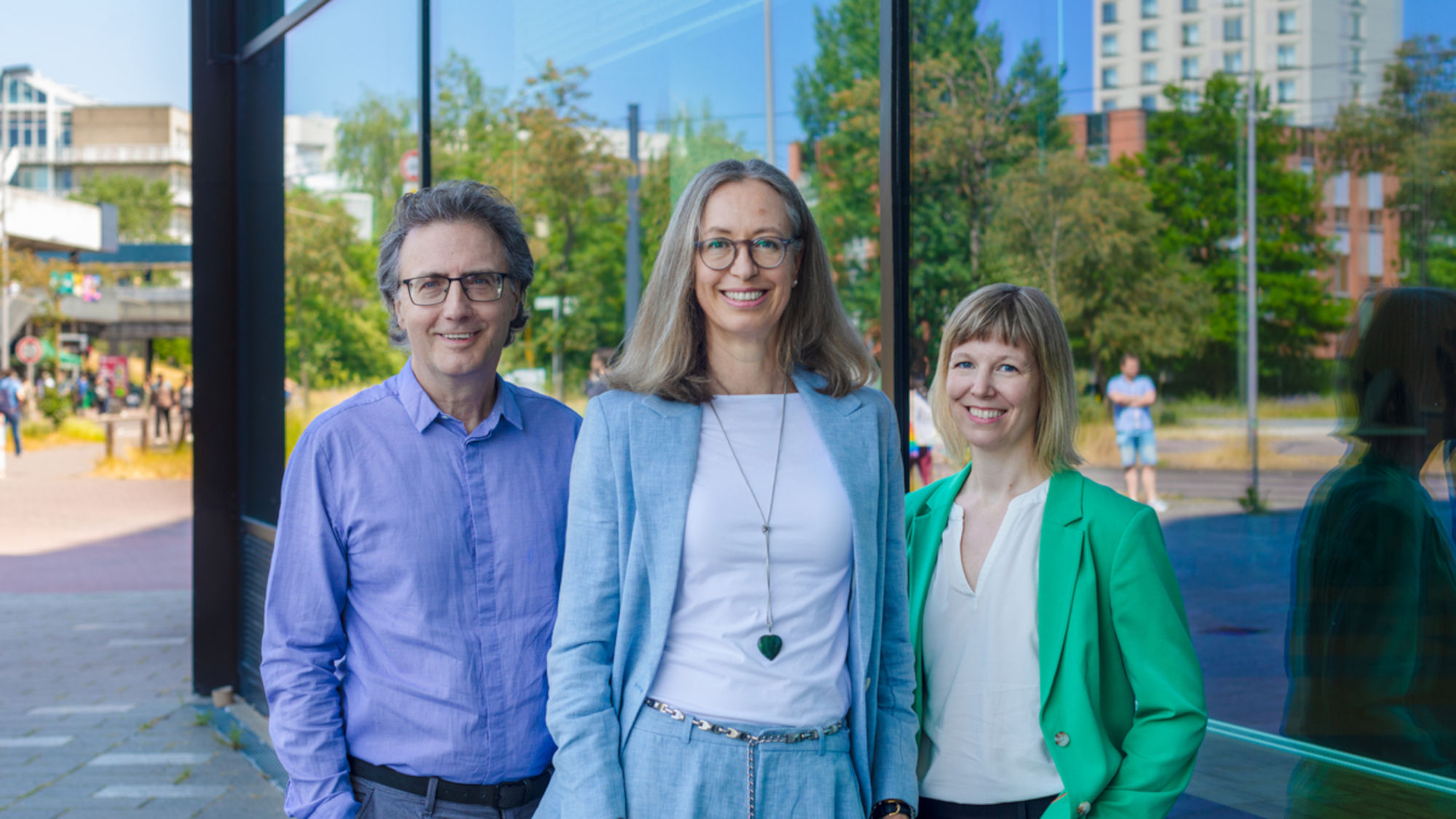
© Matej Meza / Universität Bremen
Health and Human Potential at the University of Bremen in Focus
Human resource development and Workplace Health Management (BGM): Insights into Unit 07
In today’s working world, human resource development (HRD) and workplace health management play a central role. They do not only promote the professional and personal development of staff, but also contribute significantly to their health and well-being. Alexandra Baumkötter, Claus Lewandowski, and Simone Oelze talk about their work.
What is Human Resource Development?
Claus Lewandowski, responsible for human resource development of academic staff, defines HRD as follows: “We support the university in ensuring that the right people with the right qualifications are in the right place at the right time.” Alexandra Baumkötter, who is responsible for human resource development of staff in administration and operations, adds, “Our task is strategic HR development that is geared towards the university’s needs and goals: Where does the university want to go; which employees do we need; what skills do they need?”
Human resource development at the university offers a variety of workshops and trainings, which are tailored to different target groups, for example, training on conflict management. “We have programs for staff in leading positions, postdoctoral researchers, and tenure-track professors. We look at the needs of a particular group and how we can support them,” Lewandowski states. In addition to workshops, there are also one-on-one sessions. Employees can decide together with their supervisor which courses are useful for their individual development, Baumkötter adds.
The Role of Human Resource Development
Why is human resource development important? “The employees are the driving force behind the university,” emphasizes Baumkötter. “They ought to have the best possible training for their job.” In the area of administration and operations, it’s all about skills development and continuous learning, i.e. being up to date with the requirements of the job.
According to Lewandowski, interdisciplinary qualifications play an important role in the academic field, especially for early-career researchers, such as doctoral students.
New Development: Collaboration of HRD and BGM
A new development at the University of Bremen is the close collaboration between human resources development and the Workplace Health Management. This collaboration allows more comprehensive and effective measures that bring about positive changes at both an individual and organizational level, says Simone Oelze from BGM. “Good health is crucial for good work performance, for being productive and creative, but also for enjoying work. It promotes cooperation and team spirit, while at the same time strengthening health and well-being. Interpersonal relationships play a major role when it comes to health.”
The BGM team offers needs-based measures: Through health reports such as those from the health insurances, the team knows which health conditions are particularly serious. BGM health workshops and trainings take place during working hours. They are always about preventative healthcare and training health literacy, with supervising staff being important multipliers, according to Oelze. “It is particularly important to train staff in leading positions so that they can lead a healthy lifestyle themselves and then use this experience to manage their employees more effectively. That way, they develop a better understanding.”
The Challenges of Remote Work
One challenge in recent times has been the issue of working remotely. The working methods and dynamics of many teams have changed. “The team structure and cooperation within the team have changed. Digitalization is impacting hugely on how we work together and what requirements and skills are needed,” Baumkötter reports. Lewandowski observes this for academic staff as well: “Many teams have asked how they can develop a positive team dynamic again.” Informal contacts and discussions, which used to be a matter of course, are now taking place less. According to Oelze, health effects are also being observed. “When people work from home often, work boundaries and loneliness can be issues,” she states.
The Role of Organizational Culture
In addition to individual measures, organizational development also plays a central role. “The university has a great interest in creating healthy working conditions,” Baumkötter explains. The employee survey was one of the first steps in this direction, as was the risk assessment of mental stress. “It is about promoting a culture that embraces good communication and a culture of appreciation. These aspects are crucial for the well-being and job performance of employees,” Oelze emphazises.